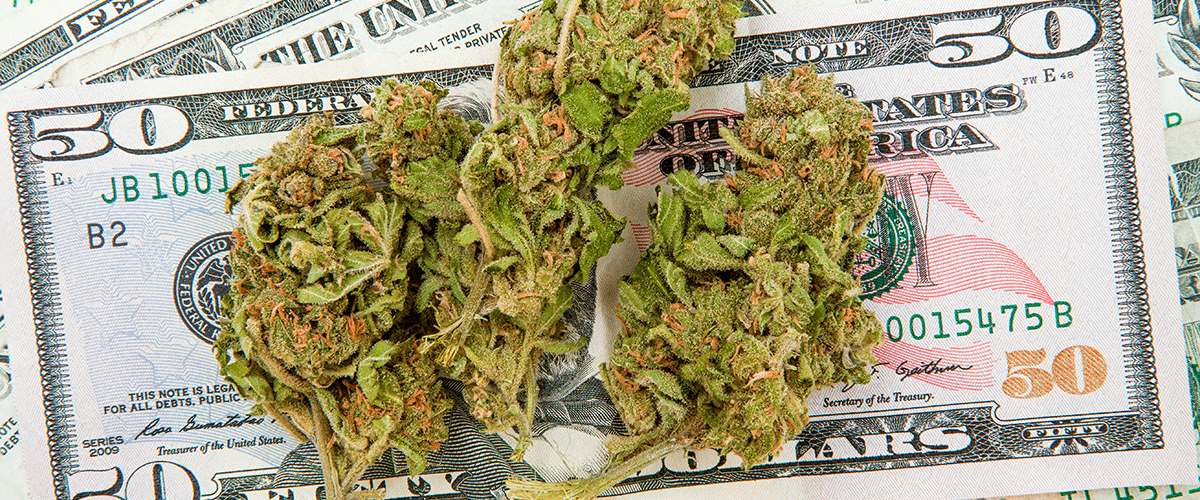[vc_row][vc_column][vc_column_text]
The latest report from respected market research firm ArcView projects that the legal cannabis market is growing faster than the dot-com boom of 2000.
The burgeoning legal cannabis market in the United States is outpacing the 2000s dot-com boom, the International Business Times reports. According to a new report from Oakland firm ArcView Market Research, the nation’s cannabis market grew by 30 percent and had $6.7 billion in sales in the past year.
The report projects that the market will exceed $21 billion by 2021 and have a gross domestic growth rate of 25 percent. This would outpace the 22 percent gross domestic product growth rate of the dot-com surge, which refers to the rapid rise in equity markets of internet-based companies that happened in the late 1990s and early 2000s.
“The only consumer industry categories I’ve seen reach $5 billion in annual spending then post anything like 25 [percent] compound annual growth in the next five years are cable television (19 [percent]) in the 199s and the broadband internet (29 [percent]) in the 2000s,” Tom Adams, ArcView’s editor-in-chief, told Forbes.
For ArcView’s analysis, the marketing firm partnered with BDA Analytics, which provided data regarding individual dispensary consumer transactions.
As of now, eight states have legalized recreational marijuana and 28 states have passed comprehensive medical marijuana laws. With eight states, including cannabis market powerhouse California, passing measures in November, advocates and entrepreneurs are highly optimistic about the future of the industry.
“Twenty-one percent of the total U.S. population now live in legal adult use markets,” Troy Dayton, ArcView’s Chief Executive Officer, told Forbes. He also noted that the first three states to legalize adult use marijuana — Colorado, Washington and Oregon – experienced a 62 percent jump in sales through September of 2016 over 2015.
“You will not find another multi-billion dollar market growing at a 25% compound annual growth rate anywhere in the world that is not already filled with multi-national companies and institutional investors,” Dayton added. “That’s part of what makes the cannabis industry such a unique opportunity for investors and entrepreneurs.”[/vc_column_text][/vc_column][/vc_row][vc_row][vc_column][vc_single_image image=”17394″ img_size=”1200×250″ onclick=”custom_link” img_link_target=”_blank” link=”https://www.medicalmarijuanainc.com/legal-marijuana-sales-forecasts-potentially-44-billion-2020/”][/vc_column][/vc_row][vc_row][vc_column][vc_column_text]According to ArcView’s report, the market is moving toward non-smokable forms of marijuana.
“One of the biggest stories was the alternative forms of ingestion,” Dayton told Forbes. “Concentrates and edibles are becoming customer favorites versus traditional smoking.”
There is some concern among businesses and advocates about the impact Donald Trump’s incoming administration could make on the market. Trump’s attitudes on legalized cannabis have shifted several times and proposed attorney general Jeff Session has historically been a stringent opponent to legalized cannabis for any purpose. Dayton believes, however, that marijuana will be a low priority for the administration and that Trump will follow through with his promise to favor state’s rights when it comes to legalization.
“It’s one of the few things he has been consistent on,” Dayton said.
ArcView also projects that the cannabis market in Canada, a country expected to legalize recreational use sometime this year, will also experience a high growth in sales.
The full 200-page market research report from ArcView will be available in February. You can read the entire International Business Times report, here.
Interested in learning more about the burgeoning cannabis industry? Read what Medical Marijuana, Inc. believes the New Year will bring for the cannabis industry.[/vc_column_text][/vc_column][/vc_row]






